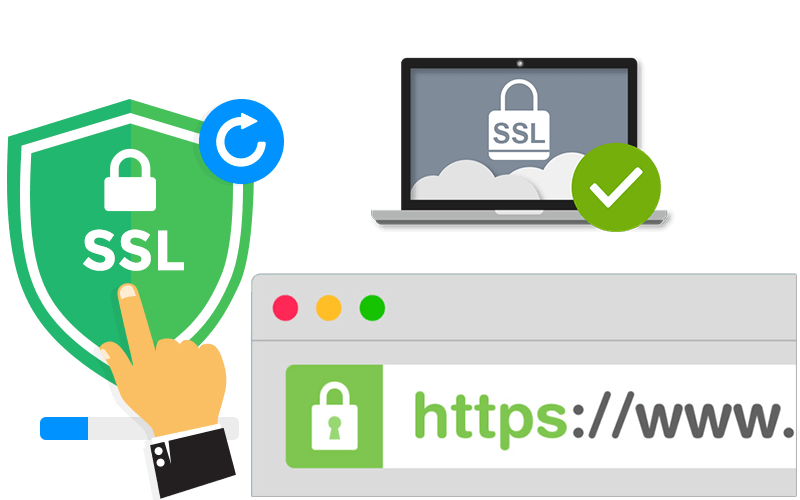Why Is A Domain Validated SSL Perfect For Most Websites?
With an increase in the number of hacking attempts and online threats, security has become a concern for most websites. Regular security issues can dent the brand’s reputation and result in losing some crucial SEO points. While site owners try to opt for web hosting plans that offer maximum security, there are other tools that they can use to protect their websites.
Among the range of security tools and measures deployed by site owners, installing a Secure Sockets Layer or SSL certificate has become a must. A few years ago, Google declared that its web browser, Chrome, will display a ‘Not Secure’ notification in the address bar for websites that don’t have an SSL certificate installed. This certificate is issued by an authority and authenticates a website.
However, before you buy SSL Certificate for your website, it is important to understand that there are three variants available in the market – Domain Validated (DV), Organization Validation (OV), and Extended Validation (EV). Today, we are going to talk about Domain Validated SSL Certificates and look at the reason why they are perfect for most websites.
What is a Domain Validated (DV) SSL Website Security Certificate?
A Domain Validated or DV SSL Certificate helps validate your site’s domain. It helps users verify the identity of the site. This is issued within a few hours of applying and does not involve high-level verification or documentation.
Why is a Domain Validated SSL Certificate perfect for most websites?
There are many reasons that make a DV SSL Certificate perfect for most websites as listed below:
1. Lower Costs
Among the three types of SSL Certificates for websites – DV, OV, and EV, the price of a Domain Validated Certificate is the lowest. This makes it popular among all kinds of websites, especially those who need an SSL Certificate to merely comply with Google’s declaration of having it installed.
2. Quick Issuance
The domain verification process is simple:
- You apply for a DV SSL Certificate with the Certifying Authority (CA).
- The CA opts for one of these methods to verify the domain:
- Email verification – where the CA send an email to your email address with a confirmation link. It is important that the email address has your domain name and starts with admin, administrator, webmaster, postmaster, etc. that indicates that the person accessing the email has control over the domain.
- File-based verification – where the CA provides an HTML file containing hash data. You need to upload this file into the root directory of the server. Once done, the CA issues the certificate.
- Domain Registrar’s Information – where the CA verifies the ownership of the domain via the information available with the Domain Registrar.
Once the domain verification is done, the CA issues the DV SSL Certificate within a few minutes.
3. No documentation needed
Unlike OV and EV SSL Certificates, you don’t need to submit any documents for the issuance of a DV SSL Certificate.
4. Other features of a DV SSL Website Security Certificate
Here are some other features of a DV SSL Certificate that have made it popular among all kinds of websites:
- 2048-bit signature
- Encryption strength of up to 256-bit
- You can secure both ‘www’ and ‘non-www’ domains
- DV SSL Certificates are compatible with around 99% of the web browsers used around the world
- Free site seal from the CA
- Can be reused multiple times during the validity period.
Summing Up
As you can see, a domain validated SSL certificate allows site owners to get their domains verified and get a seal on their website. This allows users to feel secure, and the low costs and hassle-free issuance process works well with most websites. While SSL certificates offer various advantages, a DV SSL Certificate is the most basic one and ensures domain verification alone.



